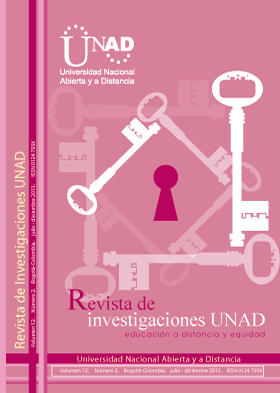Cuando la REVISTA DE INVESTIGACIONES UNAD recibe la postulación de un original por parte de su autor, ya sea a través de correo electrónico o postal, considera que puede publicarse en formatos físicos y/o electrónicos y facilitar su inclusión en bases de datos, hemerotecas y demás sistemas y procesos de indexación. REVISTA DE INVESTIGACIONES UNAD autoriza la reproducción y citación del material de la revista, siempre y cuando se indique de manera explícita el nombre de la revista, los autores, el título del artículo, volumen, número y páginas. Las ideas y conceptos expresados en los artículos son responsabilidad de los autores y en ningún caso reflejan las políticas institucionales de la UNAD
Habilidades de pensamiento como estrategia de aprendizaje para los estudiantes universitarios.
En el presente trabajo se plantea el tema referido a las habilidades de pensamiento o capacidades mentales que permiten al individuo construir y organizar su conocimiento, para aplicarlo con mayor eficacia en diversas situaciones; asimismo, constituyen la capacidad y disposición para el desarrollo de procesos mentales, que contribuyen a la resolución de problemas los cuales se desarrollan con la práctica consciente o inconsciente y se relacionan con el acto de pensar del ser humano.
Los procesos de pensamiento se pueden agrupar de acuerdo con sus niveles de complejidad y abstracción, a saber: procesos básicos como: la observación, comparación y clasificación; procesos integradores: análisis, síntesis y evaluación. Estos procesos son el cimiento sobre los cuales se construye y organiza el conocimiento y el razonamiento.
De otra parte, se recomiendan estrategias para desarrollar dichas habilidades en los estudiantes mediante mapas conceptuales, mapas mentales, mentefactos, que contribuyen a promover el pensamiento de orden superior y a proveer oportunidades para que cada estudiante sea exitoso.




